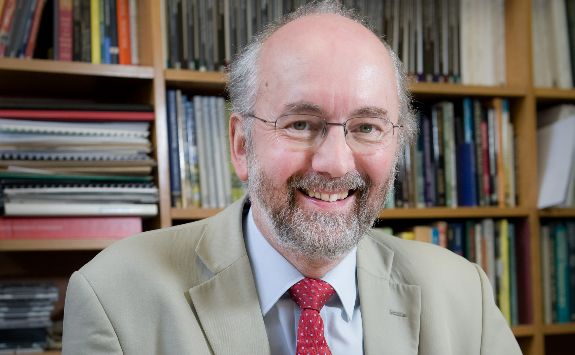Shaping international policy
Professor Peter Stone OBE is UNESCO Chair in Cultural Property Protection and Peace. He is President of the Blue Shield and a member of the UK National Commission for UNESCO's Expert Network.
Prof Stone's work shapes international policy for protecting cultural heritage where armed conflict occurs.
The role of cultural property
Protecting cultural heritage is important for individual and community well-being.
Once destroyed, cultural property cannot simply be replaced. Complex in nature, cultural property:
- provides a sense of place and identity
- defines communities
- is a source of livelihood for many
- can be a vehicle for reconciliation

Developing safeguarding processes
In 2003, Prof Stone advised the UK’s Ministry of Defence on the protection of archaeological cultural heritage in Iraq. Since then, he has worked with global organisations to protect cultural property during times of conflict. This has involved developing and refining new processes and changing attitudes.
Protecting heritage is best achieved through partnership. Working together, groups can understand that protecting heritage helps them achieve their aims. This was part of his ‘4 Tier Approach’ to protect and preserve cultural property and archives.
A '4 Tier Approach'
Prof Stone's approach brings together:
- cultural heritage experts
- the military
- the UK's Ministry of Defence
- NATO
There was no framework before for co-operation between these partners.
The four-phase approach works long-term, pre-deployment, during conflict and in post-conflict stabilisation. It is now seen as a first step in the development of change in military doctrine for the UK and NATO. It led to the establishment of a Joint Service Cultural Property Protection Unit, operational in UK forces from 2020.

Utilising data for economic growth
The National Innovation Centre for Data (NICD) uses the power of data to unlock economic opportunities and support the government.

The driverless road ahead
The popularity of driverless vehicles is growing. Policy Newcastle explores the ways it can make the industry more efficient.


.jpg?length=1920&name=Cultural%20property%20(Desktop%201800x1213).jpg)
